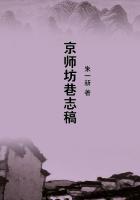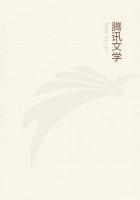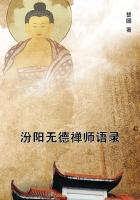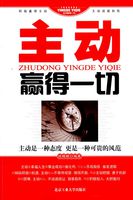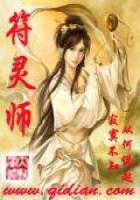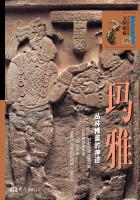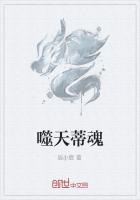SAN FRANCISCO--EARLY CALIFORNIA EXPERIENCES--LIFE ON THE PACIFIC COAST--PROMOTED CAPTAIN--FLUSH TIMES IN CALIFORNIA.
San Francisco at that day was a lively place. Gold, or placer digging as it was called, was at its height. Steamers plied daily between San Francisco and both Stockton and Sacramento.
Passengers and gold from the southern mines came by the Stockton boat; from the northern mines by Sacramento. In the evening when these boats arrived, Long Wharf--there was but one wharf in San Francisco in 1852--was alive with people crowding to meet the miners as they came down to sell their "dust" and to "have a time." Of these some were runners for hotels, boarding houses or restaurants; others belonged to a class of impecunious adventurers, of good manners and good presence, who were ever on the alert to make the acquaintance of people with some ready means, in the hope of being asked to take a meal at a restaurant. Many were young men of good family, good education and gentlemanly instincts. Their parents had been able to support them during their minority, and to give them good educations, but not to maintain them afterwards. From 1849 to 1853 there was a rush of people to the Pacific coast, of the class described. All thought that fortunes were to be picked up, without effort, in the gold fields on the Pacific. Some realized more than their most sanguine expectations; but for one such there were hundreds disappointed, many of whom now fill unknown graves; others died wrecks of their former selves, and many, without a vicious instinct, became criminals and outcasts. Many of the real scenes in early California life exceed in strangeness and interest any of the mere products of the brain of the novelist.
Those early days in California brought out character. It was a long way off then, and the journey was expensive. The fortunate could go by Cape Horn or by the Isthmus of Panama; but the mass of pioneers crossed the plains with their ox-teams. This took an entire summer. They were very lucky when they got through with a yoke of worn-out cattle. All other means were exhausted in procuring the outfit on the Missouri River. The immigrant, on arriving, found himself a stranger, in a strange land, far from friends. Time pressed, for the little means that could be realized from the sale of what was left of the outfit would not support a man long at California prices. Many became discouraged. Others would take off their coats and look for a job, no matter what it might be. These succeeded as a rule.
There were many young men who had studied professions before they went to California, and who had never done a day's manual labor in their lives, who took in the situation at once and went to work to make a start at anything they could get to do. Some supplied carpenters and masons with material--carrying plank, brick, or mortar, as the case might be; others drove stages, drays, or baggage wagons, until they could do better. More became discouraged early and spent their time looking up people who would "treat," or lounging about restaurants and gambling houses where free lunches were furnished daily. They were welcomed at these places because they often brought in miners who proved good customers.
My regiment spent a few weeks at Benicia barracks, and then was ordered to Fort Vancouver, on the Columbia River, then in Oregon Territory. During the winter of 1852-3 the territory was divided, all north of the Columbia River being taken from Oregon to make Washington Territory.
Prices for all kinds of supplies were so high on the Pacific coast from 1849 until at least 1853--that it would have been impossible for officers of the army to exist upon their pay, if it had not been that authority was given them to purchase from the commissary such supplies as he kept, at New Orleans wholesale prices. A cook could not be hired for the pay of a captain. The cook could do better. At Benicia, in 1852, flour was 25 cents per pound; potatoes were 16 cents; beets, turnips and cabbage, 6 cents; onions, 37 - 1/2 cents; meat and other articles in proportion. In 1853 at Vancouver vegetables were a little lower. I with three other officers concluded that we would raise a crop for ourselves, and by selling the surplus realize something handsome. I bought a pair of horses that had crossed the plains that summer and were very poor. They recuperated rapidly, however, and proved a good team to break up the ground with. I performed all the labor of breaking up the ground while the other officers planted the potatoes. Our crop was enormous. Luckily for us the Columbia River rose to a great height from the melting of the snow in the mountains in June, and overflowed and killed most of our crop. This saved digging it up, for everybody on the Pacific coast seemed to have come to the conclusion at the same time that agriculture would be profitable. In 1853 more than three-quarters of the potatoes raised were permitted to rot in the ground, or had to be thrown away. The only potatoes we sold were to our own mess.
While I was stationed on the Pacific coast we were free from Indian wars. There were quite a number of remnants of tribes in the vicinity of Portland in Oregon, and of Fort Vancouver in Washington Territory. They had generally acquired some of the vices of civilization, but none of the virtues, except in individual cases. The Hudson's Bay Company had held the North-west with their trading posts for many years before the United States was represented on the Pacific coast. They still retained posts along the Columbia River and one at Fort Vancouver, when I was there. Their treatment of the Indians had brought out the better qualities of the savages. Farming had been undertaken by the company to supply the Indians with bread and vegetables; they raised some cattle and horses; and they had now taught the Indians to do the labor of the farm and herd. They always compensated them for their labor, and always gave them goods of uniform quality and at uniform price.


